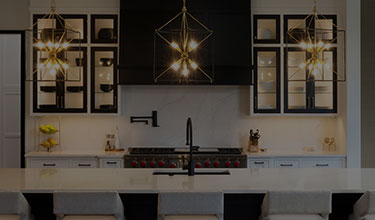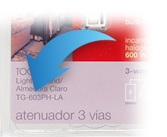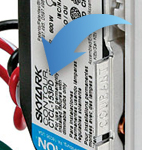
Explore Knowledge Articles
Integrating Outdoor Heaters with Lutron Residential Systems
Overview
Lutron offers numerous products for control of 0-10V⎓ loads in residential systems. This document describes how to utilize some of these products to control outdoor heaters such as Infratech and Bromic.
Table of Contents
- Controlling Outdoor Heaters Using 0-10V⎓
- Installation of 0-10V⎓ Controls with Outdoor Heaters
- HomeWorks or RadioRA Database Design
|
WARNING - Entrapment Hazard – To avoid the risk of entrapment, serious injury, or death, these controls must not be used to control equipment that is not visible from every control location or that could create hazardous situations if operated accidentally or through malfunction (for example, motorized gates, garage doors, industrial doors, microwave ovens, heating pads, fireplaces, space heaters, etc.) It is the installer’s responsibility to ensure that these controls are connected only to suitable loads and equipment types and that such equipment is visible from every control location. Failure to do so could result in serious injury or death. |
Controlling Outdoor Heaters Using 0-10 V⎓
When using 0-10V⎓ to control outdoor heaters, the heater requires a control device to “source” a 0-10V⎓ signal. For more information on the ANSI standard for sourcing 0–10 V⎓ controls, refer to Application Note #587 (048587) at www.lutron.com. The following outdoor heaters are known to be compatible with Lutron 0-10V⎓ controls.
- Infratech
- Bromic
The 0-10V⎓ control device allows a user to turn on and off the outdoor heater via the Lutron controls system. This is available with Lutron HomeWorks and RadioRA systems via compatible 0-10V⎓ controls. The table below provides a list of all Lutron controls that can be used to control outdoor heaters.
|
Lutron Control Device |
Model Number |
Description |
Controls System |
|
RF Dimming Module with 0–10 V⎓ Control |
LMJ-5T-DV-B |
Wireless Clear Connect Type A LMJ 0-10V⎓ J-Box module |
HomeWorks QSX, HomeWorks QS, RA2 Select, RadioRA 2, RadioRA 3 |
|
0–10 V⎓ Power Module |
LQSE-4T5-120-D |
4-Zone DIN Power Module for 0–10 V⎓ Switching lighting loads |
HomeWorks QSX, HomeWorks QS |
|
0–10 V⎓/Softswitch Power Module |
LQSE-4T20-120-D |
4-Zone DIN Power Module with 0–10 V⎓/Softswitch for controlling lighting, receptacles, and other loads |
HomeWorks QSX |
|
Ten Volt Module |
GRX-TVM21 |
0-10V⎓ TVM Module for Remote Power Module (RPM) Panels |
HomeWorks QS, HomeWorks QSX3 |
|
Ten Volt Interface |
GRX-TVI-CPN38762 |
Converts 100-277 V~ forward, reverse, or center phase control input signals to 0-10V⎓ source signal |
HomeWorks QSX, HomeWorks QS, RA2 Select, RadioRA 2, RadioRA 3 |
- TVMs can work in conjunction with the outputs of RPM-4U modules to switch the ballast or driver in legacy HomeWorks systems. This is only available for existing projects where a new heater is being added to a legacy system, not for use with new HomeWorks QSX projects.
- Must be used in conjunction with a compatible control device. See the GRX-TVI product specification sheet on lutron.com for a list of compatible control devices.
- RPMs/TVMs must be used in conjunction with the Panel Link to QS Link Translator to function with HomeWorks QSX in a system upgrade project. For more information about system upgrades view application note 840 on lutron.com
Installation of 0-10V⎓ Controls with Outdoor Heaters
Some outdoor heaters will require an interruption to the 0–10 V⎓ Lutron control signal using an EPC-2-D, manufactured by LVS Controls (not sold by Lutron), to turn off the heater. An EPC-2-D is required because the relays used to fully turn off 0–10 V⎓ lighting are often not rated for control of outdoor heaters. Other heaters do not require an interruption to the 0-10V⎓ Lutron control signal to turn off the heater. This is based on the 3rd party heater manufacturers’ requirements, exact requirements must be verified with the 3rd party. The diagrams below demonstrate how the Lutron control needs to be wired to the 3rd party outdoor heater in both scenarios.
Wiring 0-10V⎓ Lutron Controls to Outdoor Heaters Without the EPC-2-D
Items needed for this installation:
|
Item |
Company |
Function |
|
0-10V⎓ Controller1 |
Lutron |
Provides the 0-10V⎓ control signal |
|
Expansion Board with BMS |
Bromic |
Interface allowing a 0-10V⎓ controller to indirectly control the heater. |
- See section 1.0 for compatible Lutron 0-10V⎓ Controllers
Wiring 0-10V⎓ Lutron Controls to Outdoor Heaters Using the EPC-2-D
Items needed for this installation:
|
Item |
Company |
Function |
|
0-10V⎓ Controller1 |
Lutron |
Provides the 0-10V⎓ control signal |
|
EPC-2-D |
LVS Controls |
Interrupts the 0-10V⎓ signal |
|
Outdoor Heater Relay Module |
Infratech |
Manages power to heaters based on control signal input |
- See section 1.0 for compatible Lutron 0-10V⎓ Controllers
HomeWorks or RadioRA Database Design
For the outdoor heater to function within the Lutron system the Lutron control device must be added to the database and the connected 0-10V⎓ outdoor heater load must be defined properly. This process is no different than if the system were controlling a 0-10V⎓ lighting load. However, the trim settings need to be adjusted for each type of Lutron controller. This section will provide details about the correct load settings to use for each type of Lutron control. Additionally, database design recommendations will be provided to empower an intuitive user experience.
Trim Settings
The following trim levels need to be set on each device, and a phase needs to be selected for dimmers capable of either forward or reverse phase control. Set dimmers capable of forward- and reverse- phase control to forward-phase.
|
Lutron Control Device |
Model Number |
Trim Settings | |
|
High End |
Low End | ||
|
RF Dimming Module with 0–10 V⎓ Control |
LMJ-5T-DV-B |
99% |
1% |
|
0–10 V⎓ Power Module |
LQSE-4T5-120-D |
99% |
1% |
|
0–10 V⎓/Softswitch Power Module |
LQSE-4T20-120-D |
99% |
1% |
|
Ten Volt Module |
GRX-TVM2 |
99% |
1% |
|
Ten Volt Interface |
GRX-TVI-CPN38761 |
81% |
28% |
- If used in conjunction with a fluorescent dimmer, no trim level adjustments are required. This is because the GRX-TVI-CPN3876 is looking for a signal from a fluorescent dimmer.
The trim settings can be defined prior to adding the outdoor heater load to the project. In RadioRA3 and HomeWorks this can be achieved by adjusting the universal high and low end in Project Settings.
This can also be adjusted for the individual load while assembling the database design.
- RadioRA 3: Design > Controls > View Properties
- HomeWorks: Design > Loads or Design > Loads > Edit Fixture Types
Adding a 0-10V⎓ Load and Control Device to a Database
To incorporate control for an outdoor heater in the Lutron Designer software the heater will be represented by the Lutron 0-10V⎓ load. The software does not natively include 3rd party outdoor heaters. For that reason, the heater will be added to the software using a standard 0-10V⎓ controller and load.
HomeWorks Database Design
Use the following steps to add an outdoor heater to the database. Notice, the Fixture Name, Zone Name, and Device Location Name are all listed as “Outdoor Heater”
Step 1: Create a 0-10V⎓ Fixture
Step 2: Create the 0-10V⎓ Load
Step 3: Assign the Load to a 0-10V⎓ Lutron Controller
NOTE: If using a dimmer that does not natively control 0-10V⎓ the GRX-TVI will automatically be added to the Interface column when the 0-10V⎓ load is assigned to the dimmer. However, for outdoor heaters to function properly, the heater requires a “source” 0-10V⎓ signal. The standard TVI uses sync, not source. See section 1.0 for the correct custom Ten Volt Interface device that is required for this type of control.
RadioRA 3 Database Design
To add an outdoor heater to the database, add the 0-10V⎓ controller and define the Zone Name and Device Location Name as “Outdoor Heater”
NOTE: If using a dimmer that does not natively control 0-10V⎓ the GRX-TVI will automatically be added to the Interface column when the load type is changed to “LED 0-10 V”. However, for outdoor heaters to function properly, the heater requires a “source” 0-10V⎓ signal. The standard TVI uses sink, not source. See section 1.0 for the correct custom Ten Volt Interface device that is required for this type of control.
Additional Design Considerations
In the Lutron mobile app, the outdoor heater will appear as a lighting load. For that reason, the user will be capable of remote control for the heaters. While the heater systems typically have safety features built in, it’s best to include additional indicators while designing the Lutron database. This will help ensure more safety and discourage remote control. Below are some recommendations to consider while building a database that includes an outdoor heater.
- Name the Lutron control device and load clearly as the outdoor heater by listing it in ALL CAPS.
- Add the Lutron control device and load in a dedicated area for the outdoor heater.


